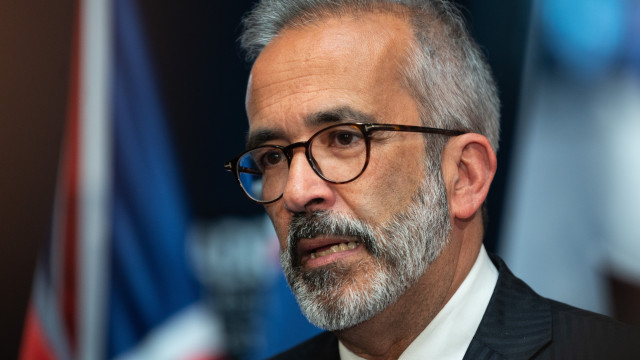
“It is determined that a minimum service provision of twenty-five percent (25%) of the scheduled offer will be implemented during peak hours and on critical urban lines,” as stated in the decision dated July 10.
This decision arises from an appeal presented by CP — Comboios de Portugal against the ruling of the Arbitration Court of the Economic and Social Council which initially decided “not to set any minimum services for the ‘strike from 00:00 on May 7 to 24:00 on May 14, 2025, and the strike from 00:00 on May 7 to 24:00 on May 8, 2025’.”
CP requested a minimum service level of 30%, while unions argued against setting any minimum services.
The arbitration court established a minimum service of 25% for the CP ticket inspectors’ and ticket office strike between May 11 and 14.
The Lisbon Court of Appeal noted, “The reason for not decreeing minimum services was based on perfectly legitimate and valid concerns related to the safety of users and workers,” but stated there were no reports of safety problems in other strikes that had minimum services of 25% and 30%.
“Thus, while respecting differing opinions, it is necessary to establish the minimum services at 25 percent of the scheduled offer, focusing on peak hours and critical urban lines, which, despite natural and inevitable constraints, ensures part of the regular operation and provides minimum safety conditions for users and workers and somewhat mitigates the effects of the stoppage on users’ daily lives, albeit with evident disruptions,” the document reads.
The court found that this approach “aligns the right to strike with the right to commute to work.”
In a LinkedIn post, the Minister for Infrastructure, Miguel Pinto Luz, noted today that the decision of the Appeal Court takes effect on July 26, “unable to protect the thousands of citizens who were affected on those days,” but aligns with the government’s stance that “the right to strike must be proportionally balanced with the right to commute to work,” reiterating the Government’s commitment to meeting its obligations with CP workers.
The National Union of Train Drivers of Portuguese Railways (SMAQ) rejected the minister’s accusations that the CP strike had political motivations and blamed the Government for the inconvenience caused to the public by not honoring an agreement negotiated and reached on April 24 between the administration of CP and the unions.
Between May 7 and 14, three strikes were called at CP, one of which was organized by the Middle Management Railway Operations Union (ASCEF), the Independent Railway Commercial Career Union (ASSIFECO), the Federation of Transport and Communications Unions (FECTRANS), the National Transport, Communications and Public Works Union (FENTCOP), the National Union of Railway Workers of the Movement and Related (SINAFE), the Democratic Railway Workers Union (SINDEFER), the Independent Union of Railway Infrastructure Workers (SINFA), the National Independent Union of Railway Workers (SINFB), the National Union of Transport and Industry Workers (SINTTI), the Independent Union of Railway and Related Operational Workers (SIOFA), the National Technical Staff Union (SNAQ), the National Union of Railway Sector Workers (SNTSF), the Railway Transport Workers Union (STF) and the Subway and Railway Workers Union (STMEFE).
The strike also included those organized by SMAQ and the Railway Commercial Revision Union (SFRCI).




